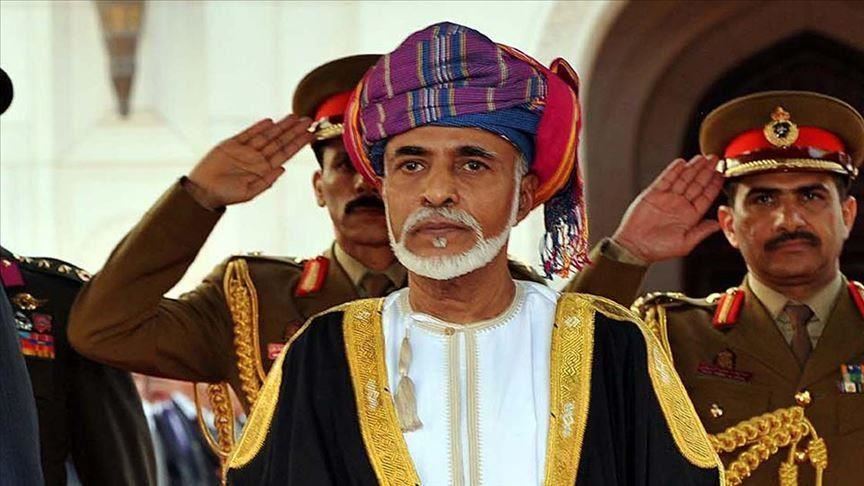PROFILE - Sultan Qaboos of Oman dies
Oman pursued neutral path in foreign policy under Qaboos

ANKARA
The Arab world's longest-serving ruler, Sultan Qaboos bin Said of Oman died on Friday at the age of 79 after a long battle with illness.
State media hailed Qaboos for his "wise and triumphant march full of tenderness that covered Oman from one extreme to the other, and extended all across the Arab, Islamic and international worlds and resulted in a balanced policy that the whole world respected."
Taking the helm of power in the Gulf country in 1970, Qaboos was credited for modernizing Oman and pursuing a quiet diplomacy away from regional conflicts.
Born in Salalah in southern Oman in 1940, Qaboos was the eighth sultan of the House of Al Said.
In his twenties, he attended a royal military academy in Britain before returning to Oman.
The only son of Sultan Said bin Taimur, Qaboos became the ruler of the Gulf country in 1970 after reportedly leading a bloodless coup against his father.
The late sultan was credited for modernizing his country, using the oil money to build roads and hospitals and develop infrastructure.
In Oman, the sultan holds the positions of prime minister, supreme commander of the armed forces, minister of defense, minister of finance and minister of foreign affairs.
Neutral path
Under Qaboos, Oman has pursued a neutral path in foreign affairs and acted as a mediator in regional conflicts.
In the 1980s, Oman hosted talks between Iran and Iraq in an effort to end the eight-year warfare between the two neighbors.
The Gulf country also hosted talks between U.S. and Iranian officials, which resulted in a landmark nuclear agreement between Tehran and world powers in 2015.
As for the Yemeni conflict, Oman reportedly hosted rounds of talks between Saudi Arabia and Iran-backed Houthi rebels to end the five-year war that claimed the lives of thousands of Yemenis and turned the country into the world's worst humanitarian crisis.
In the Gulf crisis between Qatar and Arab neighbors, which erupted in 2017, Oman remained neutral.
Relations with Israel
Although Oman does not have diplomatic relations with Israel, the Gulf state has taken steps toward establishing contacts with the self-proclaimed Jewish state.
In the 1990s, Oman and Israel agreed to open trade representative offices, but the Gulf state closed these offices in 2000 after the outbreak of the second Palestinian Intifada.
In October 2018, Israeli Prime Minister Benjamin Netanyahu visited Oman on the second such visit by an Israeli premier since Shimon Peres visited Muscat in 1996.
Last year, Yusuf bin Alawi bin Abdullah, the minister responsible for foreign affairs in Oman, told a regional conference in Bahrain it might be "time for Israel to be treated the same [as states in the Middle East] and also bear the same obligations".


